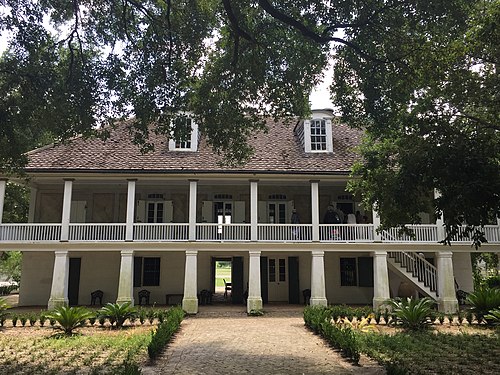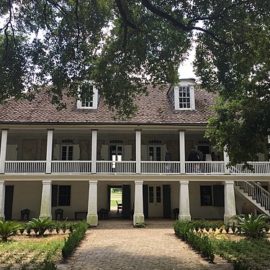
The area around Whitney Plantation is populated by Blacks whose relatives worked on the plantation as slaves. Now a grain elevator is being planned there and it will impact the plantation no matter what the company says.
Most of the 600-or-so inhabitants of Wallace in St. John Parish are Black, many of them descended from slaves who stayed on to work what was renamed the Whitney Plantation after the Civil War. Today, the Whitney Plantation houses a museum with a unique focus on the enslaved whose labors and sufferings made their White masters rich. It is a place that demands, if not reverence, at least a certain historical perspective. Any plans for industrial development require a diplomatic touch, especially as Wallace falls within that stretch along the Mississippi where Black townships cluster amid smokestacks belching noxious fumes.
nola.com
A Colorado company named Greenfield wants the grain elevator, Not too green that idea!
The latest proposal for expansion of “Cancer Alley” comes from a Colorado corporation with the wildly inappropriate name of Greenfield, the diplomatic touch of a bull in a china shop and an attitude to truth that tends to the cavalier. The plan is for a grain elevator — as tall, news reports always remind us, as the Statue of Liberty — hard by Wallace, and the Whitney Plantation. A conveyor belt would run from the river for a mile across cane fields, past 54 silos holding 4.6 million bushels of wheat, corn and soybeans. Greenfield would have us believe that the project will not be a threat to historical sites, but the report it submitted that reached such a conclusion turned out to have been doctored. References to slaves possibly buried there, for instance, got the blue pencil. Greenfield’s blandishments must henceforth fall on deaf ears. Politicians, from Gov. John Bel Edwards on down, are behind the project, while Greenfield says it has “taken great care to engage the community.” If so, its efforts have escaped the attention of local residents, who already contend with some 200 petrochemical and manufacturing plants between New Orleans and Baton Rouge. They are horrified at the prospect of living cheek by jowl with a grain elevator they fear can only bring more noise, disruption and air pollution to what is already a blighted area. Grain elevator emissions damage the lungs, the EPA says.
Not according to Greenfield, and we all know the honesty of the companies wanting to come in to Cancer Alley.
Not the way Greenfield tells it. Its plant would “help this community transition to a cleaner, more sustainable economy with family-sustaining jobs,” according to its chief operating officer, Cal Williams. As if magically turning a notorious polluter into a giant air purifier weren’t enough, Greenfield also promises more than 100 new jobs paying an average of $75,000 in a burg that Williams says has a 20% unemployment rate. An additional 500 temporary construction jobs are also promised. But the area is populated by ingrates. Suits have been filed to block the grain elevator and various powerful organizations have joined the opposition, most recently the Urban League. The president of the Urban League is former New Orleans Mayor Marc Morial, who has an ancestral interest here; his mother, born Sybil Haydel, was descended from slaves at Habitation Haydel, as the Whitney Plantation was known antebellum. The National Trust for Historic Preservation and the Advisory Council on Historic Preservation have also urged the U.S. Army Corps of Engineers to deny a permit for the grain elevator. Others opposed include the Sierra Club and the Whitney Plantation. Morial has written to Greenfield objecting to “your ill-advised plans to develop a massive grain elevator complex” on what he evidently sees as hallowed ground. His most telling concern, however, is Greenfield’s “silencing of an unfavorable independent assessment.” If that isn’t the death knell, the Whitney Plantation will soon have a grain elevator for a close neighbor.
This is another blow to this grain elevator by James Gill. But what will be the result when the politicians want something?


